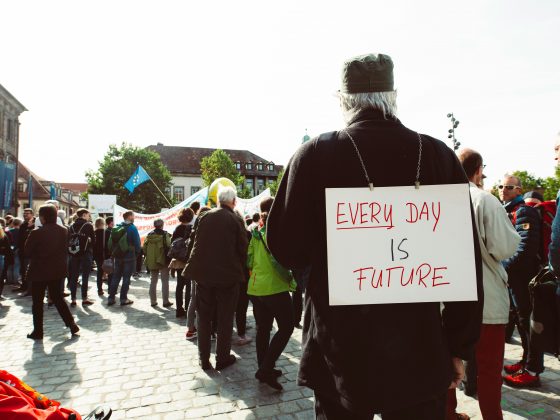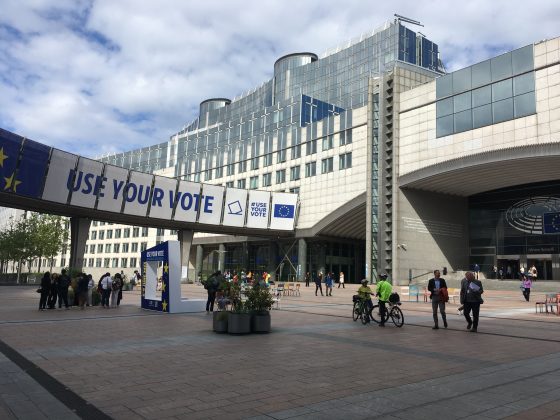The divisive politics of populism and anti-wokism pose problems for companies seeking to address sustainability issues. New research will identify how companies can navigate the political minefield.
We are in an era of divisive politics where populism and anti-wokism (essentially, a shorthand for resistance to progressive activism) can threaten commitments to human rights and social justice issues. This includes issues such as sexual and gender rights, racial diversity, climate change, and democratization.
By questioning fundamental human rights and democratic principles, some political leaders in both democratic and autocratic countries, have sought to challenge established norms and ideologies. They argue against the recognition of sexual and gender rights. They also advocate for homogeneity over racial diversity. Or, they can express scepticism towards democratic systems and processes. This can undermine years of progress in achieving equality and inclusivity by promoting discriminatory practices, xenophobic policies, or a narrowing of democratic processes.
The impact on companies
These debates can be highly polarizing, generating intense conflicts within society. For companies, such divisions and conflicts make for an extremely challenging policy environment. As a result, they need to carefully plan their political engagements and design their corporate sustainability programmes in ways that address the issues they are concerned about, but without inflaming populist leaders or their followers.
When companies take a stance on a divisive political issue such as gender equality or LGBT+ rights, they risk facing backlash from stakeholders who hold opposing views. The diversity of opinions and conflicting interests among their stakeholders can force companies to try and find a delicate balance, but always with the risk of alienating certain segments of their stakeholders. This can lead to widespread criticism or even legitimacy crises that can significantly impact a company’s licence to operate, as recently experienced by Anheuser Busch in the US as a result of its Bud Light controversy involving trans influencer Dylan Mulvaney.
Within such a politically charged environment, it becomes increasingly difficult for companies to adopt a political position that is aligned with their values, strategic priorities, and purpose. Striking a balance between contributing to societal well-being and being held accountable for their actions is crucial for the private sector. Companies must, therefore, carefully assess the potential risks and benefits of engaging in politically controversial issues, considering their impact on their stakeholders and their aspirations to adopt sustainable practices.
New research
In response to these challenges, our new project will investigate how the current divisive political environment influences companies’ strategies to address societal challenges. It is funded by UK Research and Innovation (UKRI) and is part of a larger initiative supported by the European Union’s Horizon Europe research and innovation programme.
The research will delve into various aspects of corporate decision-making, examining how characteristics of the contemporary political environment influence the development and implementation of corporate sustainability strategies, particularly in relation to social issues.
We specifically aim to answer the following questions:
- How do fundamental social issues, such as gender rights, racial diversity, and democracy impact the development and implementation of corporate sustainability strategies and guide companies in effectively addressing these issues?
- In what ways do divisive political discourses shape the priorities, values, and policy preferences of companies with respect to these issues?
- How does the economic and political turmoil of our times shape companies’ engagement with different stakeholders, including governments and nongovernment organizations, in addressing these issues?
Divisive politics in different political regimes
At the same time, we recognize the importance of addressing these questions in diverse political regimes. For example, what works for a company trying to address gender equality in one part of the world may not work in another. Therefore, we will gather insights into these questions in three specific geographical contexts – the UK, Turkey, and Saudi Arabia – which have very different political goals and perspectives and which exhibit different degrees of democratic freedoms. We will also examine the perspectives of those located in their corporate HQs in various European countries.
By examining these diverse contexts, we aim to map the complexities that arise from varying political landscapes, shedding light on how companies adapt to political dynamics while subscribing to global principles.
Through our research we will improve our understanding of how companies navigate the complexities of complex political environments in developing their corporate sustainability strategies. As a result, we will develop new insights that will inform leaders in business, politics, and civil society about how to effectively address controversial social issues through business in an era of divisive politics.




















